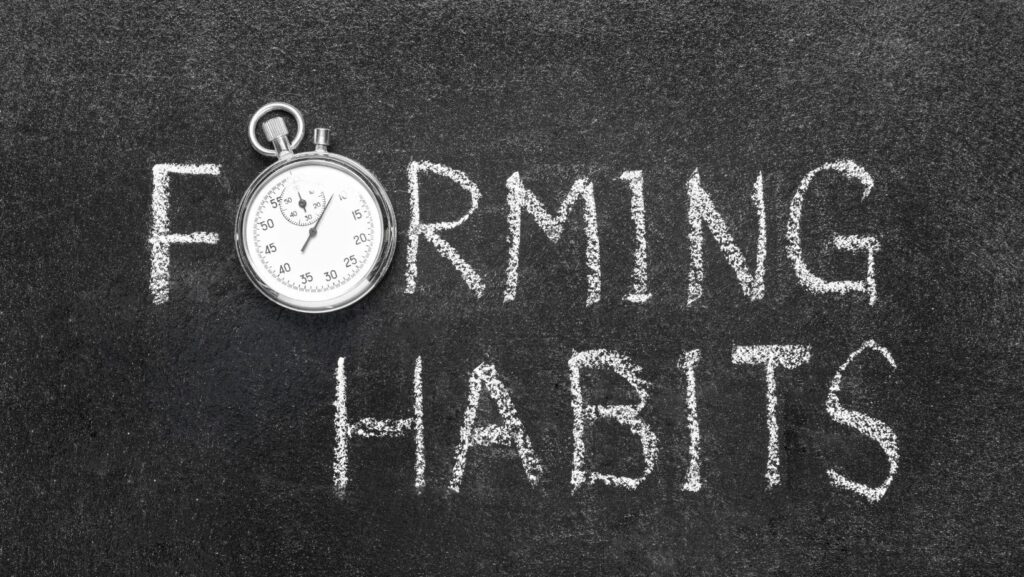In the intricate world of macroeconomics, habit formation macroeconomics plays a crucial role in shaping consumer behavior and influencing economic cycles. Understanding how habits develop and persist can provide valuable insights into spending patterns, savings, and overall economic growth. As individuals adapt their consumption based on past experiences, these habits can lead to predictable outcomes that affect markets and policy decisions.
Researchers are increasingly recognizing the significance of incorporating habit formation into economic models. By doing so, they can better analyze how shifts in consumer preferences impact demand and supply dynamics. This exploration not only enhances theoretical frameworks but also offers practical implications for policymakers aiming to stabilize economies during fluctuations. With the growing complexity of global markets, grasping the nuances of Habit formation macroeconomics is more important than ever.
Habit Formation Macroeconomics
Habit formation significantly impacts macroeconomic dynamics, influencing consumer behavior and analyzing economic patterns. Understanding this concept shapes both theoretical models and practical applications in economic policy.
Definition of Habit Formation
Habit formation macroeconomics refers to the process by which individuals develop consistent patterns of behavior over time. In macroeconomics, this concept illustrates how consumers adjust their spending habits based on previous experiences and preferences. For example, a consumer may continue to buy premium coffee daily after having enjoyed it repeatedly. This consistency leads to predictable patterns in aggregate demand, shaping sales trends across various sectors.
Importance in Economic Models
Incorporating habit formation macroeconomic into economic models enhances their predictive accuracy. Traditional models often assume rational behavior, where current consumption solely depends on current income. However, these models fail to account for the influence of past consumption patterns. For instance, when income rises, consumers with established habits might not significantly increase spending on luxury items due to their ingrained preferences. Recognizing these behavioral nuances helps economists develop more robust models that reflect actual consumer behavior and market responses, ultimately guiding effective policy measures during economic fluctuations.
Key Theories in Habit Formation Macroeconomics
Habit formation plays a crucial role in understanding consumer behavior within macroeconomic frameworks. Various theories elucidate how habits develop and affect economic variables, allowing economists to refine their models.
The Habit Formation Model
The Habit Formation Model emphasizes the importance of past consumption in shaping future consumption patterns. According to this model, individuals’ current utility from consumption depends not only on current levels but also on the history of consumption. For example, if a consumer frequently buys organic products, their future willingness to pay for such goods increases due to their developed preference. This model captures the persistence of habits, allowing economists to predict shifts in aggregate demand with greater accuracy. The integration of habit formation leads to a more dynamic understanding of consumption cycles and economic growth.
Behavioral Economics Perspective
The Behavioral Economics Perspective highlights how psychological factors influence economic decision-making through habit formation. Behavioral economists argue that decision-making isn’t always rational; individuals often rely on heuristics and emotions. For instance, consumers might develop a habit of saving a specific percentage of their income based on past experiences with financial stability. This habitual saving behavior has implications for overall savings rates and investment patterns in the economy. Understanding these behaviors allows policymakers to design interventions that harness positive habits, promoting economic stability and growth.
Empirical Evidence
Empirical evidence underscores the significance of habit formation in macroeconomics through various case studies and data analyses. This section explores real-world examples that elucidate habitual behavior’s impact on economic outcomes.
Case Studies
- Consumer Spending Patterns: A study in the United States revealed that households that regularly visit supermarkets tend to develop preferences for specific brands. Consequently, this habitual behavior leads to stable demand for certain products, demonstrating how brands can predict sales based on established consumer habits.
- Housing Market Trends: Research in the UK evaluated consumer responses to fluctuations in mortgage rates. Findings indicated that consumers with previous experience of low rates tended to maintain their purchasing behaviors even when rates rose, underscoring the role of habit formation in stabilizing housing market demand.
- Long-term Saving Behavior: An analysis of savings accounts showed that individuals exposed to automatic saving mechanisms, like employer-matched retirement plans, exhibited a greater likelihood of continued saving. This reflects how initial exposure to habitual saving affects long-term financial behavior.
| Study | Focus Area | Key Findings |
|---|---|---|
| US Consumer Study | Spending Patterns | Habitual brand loyalty correlates with demand stability. |
| UK Housing Report | Responses to Mortgage Rates | Past experiences shape consumer behavior amidst rate changes. |
| Savings Behavior | Automatic Saving Mechanisms | Initial saving practices lead to sustained saving habits. |
Statistical analyses from various studies consistently suggest that habit formation significantly influences macroeconomic variables. For instance, longitudinal studies demonstrate a strong correlation between habitual behaviors, such as regular spending on specific goods, and overall consumer confidence. The results indicate that understanding these behavior patterns enhances predictive models in macroeconomic forecasting, allowing for more effective policy interventions.
Applications in Policy Making
Understanding habit formation plays a crucial role in shaping effective policy decisions. By analyzing consumer behavior patterns, policymakers can formulate strategies that promote economic stability and growth.
Impacts on Monetary Policy
Habit formation significantly impacts how monetary policy is implemented. Central banks that recognize consumers’ tendency to stick to certain consumption patterns can tailor interest rate adjustments more effectively. For instance, if consumers develop habits around spending based on previous low-interest rates, sudden increases may not lead to immediate reductions in spending. A clear example includes the response of consumers to interest rate hikes; those with ingrained savings habits may continue to invest despite rising costs, affecting aggregate demand dynamics. Incorporating habit formation insights allows central banks to predict consumer responses more accurately and adjust their monetary strategies accordingly.
Influence on Fiscal Policy
Habit formation also shapes fiscal policy decisions. Understanding that consumers maintain spending habits can guide government interventions designed to stabilize the economy. For example, policies aimed at encouraging habitual savings—such as tax incentives for long-term investments—can foster increased financial security among households. By analyzing past behaviors, policymakers can implement programs that expect consumer resilience or resistance to changes in tax policies. Historical data has shown that consumers often adjust their spending based on previous fiscal measures, highlighting the necessity for government initiatives to align with established behavioral patterns. This alignment enhances the effectiveness of fiscal policies in achieving desired economic outcomes.
Challenges and Critiques
Understanding habit formation in macroeconomics presents challenges and critiques that require attention. Analyzing these factors enhances the robustness of economic models and policy interventions.
Limitations of Current Models
Current economic models often struggle to fully capture the complexity of habit formation. Reliance on linear approaches can oversimplify consumer behavior, overlooking the non-linear dynamics that habits entail. For example, models that ignore the potential for diminishing returns from consumption habits may misestimate demand elasticity. Furthermore, many models focus on short-term behaviors, neglecting long-term habit persistence that significantly affects consumption patterns. Research indicates that traditional models that don’t incorporate habit formation can yield inaccurate predictions, particularly during economic fluctuations when consumer behavior shifts dramatically.
Alternative Perspectives
Various alternative perspectives challenge the traditional understanding of habit formation. The Psychological Perspective introduces the idea that emotions and social influences play a critical role in shaping habits, suggesting a need for models to account for these factors. Behavioral economists argue that individuals often deviate from rationality due to cognitive biases, affecting consumption and savings decisions. Additionally, the Cultural Perspective posits that habits are deeply intertwined with societal norms and values, influencing spending and saving behaviors across different demographics. This perspective suggests that economic models may benefit from incorporating cross-cultural variations to better reflect diverse consumer behaviors and preferences, leading to more comprehensive analyses of habit formation in macroeconomic contexts.
Shaping Macroeconomic Dynamics
Habit formation plays a pivotal role in shaping macroeconomic dynamics. By understanding how past behaviors influence future consumption patterns, economists can better predict market responses and inform policy decisions. The integration of habit formation into economic models enhances their accuracy and relevance, allowing for more effective strategies to promote stability and growth. As research evolves, recognizing the psychological and cultural factors that contribute to habit development will be essential for crafting comprehensive economic frameworks. Embracing these insights not only aids policymakers but also provides a clearer picture of consumer behavior in an ever-changing global landscape.



